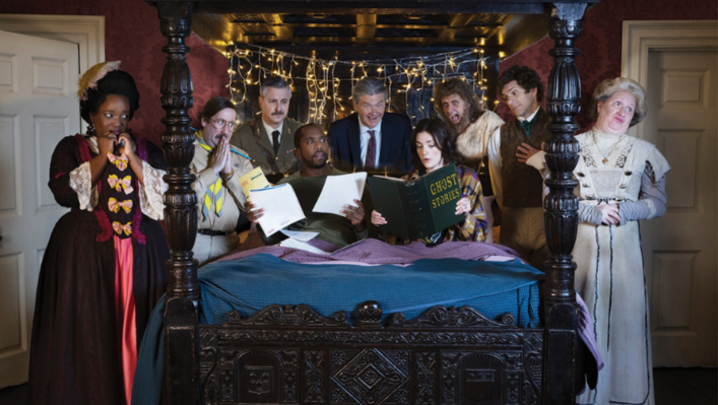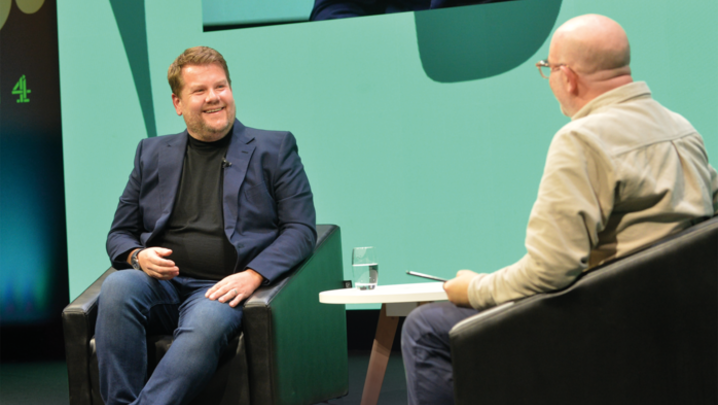An RTS London event debated the future of children’s TV in the online age.
Children are the canaries in the mine, picking things up first,” observed Greg Childs, director of the Children’s Media Foundation, as he introduced an RTS debate on how children’s TV and content movers and shakers are adapting to the fact that young people have migrated online.
An optimistic tone was established from the start by Alice Webb, the outgoing head of BBC Children’s and Education, who asserted: “Yes, the kids are absolutely fine. They have more choice than they ever had. They are exercising choice and are after things that interest them.
“Kids love consuming large amounts of content. But they love variety, too. Overall, kids are consuming as much or even more public service broadcasting.”
Her confidence was grounded in the research she led for the BBC Children’s Big Digital Plan around 2015. This resulted in an extra £34m being pumped into a range of new content from 2017, including strands aimed at teenagers up to the age of 16, rather than stopping at around 10.
"With all this demand… why is it so bloody hard to make a living from children’s TV?"
The initiative has embraced apps and YouTube, with shorter content and animation, but also encourages other BBC commissioners to consider, for example, making more youthful drama.
“As the biggest producer, we are relentlessly focused on them. We think we are the prime choice for children.…We changed ourselves so we are fit for the future,” said Webb, who will leave the BBC in March after 15 years. The only option, she added, was more of the same “relentless activity”. “The risk is if we stop.”
Richard Bradley, executive producer of Horrible Histories and Managing Director of Lion TV, responded: “If the kids are alright, I am just hoping the producers and broadcasters are. The conundrum is, [even] with all this demand… why is it so bloody hard to make a living from children’s? The public service broadcaster world, the creative ecology, is out of balance. The BBC is the only home.”
Netflix, he continued, had opened a door into another world. Productions were fully funded but “you are competing against producers from all over the world. This is work for hire – your IP is gone. [The streamers] pay a premium for that, though it has started to shrink.”
Bradley wondered whether, since Netflix and others had spotted the BBC’s Natural History Unit’s expertise, “it could do something similar for children’s television?”. The BBC therefore needed to be flexible and “get away from its obsession with channels”.
Now preparing to make the 11th series of Horrible Histories for CBBC, with the catalogue available on Netflix, Bradley highlighted how the format had adapted to comedy shorts online. Horrible History spoof songs had attracted healthy audiences: 3.8 million views for Charles II King of Bling and 2.6 million for Dick Turpin.
"Why not promote Newsround after the news, Hetty Feather after a drama? I urge the public service broadcasters to make more noise about what we do.”
Childs asked the panel: if an original BBC series such as Horrible Histories was watched by children on Netflix, did they even realise CBBC had helped it to prominence? Webb replied: “Predominantly, children know it is a BBC show.”
Bradley had a proposal: “The BBC should make more cultural noise about children’s television. There is no children’s promotion [on BBC One or BBC Two]. Why not promote Newsround after the news, Hetty Feather after a drama? I urge the public service broadcasters to make more noise about what we do.”
Channel 4 promoted a 30-minute animated version of The Tiger Who Came To Tea as its seasonal treat at the end of 2019, Bradley noted, “but children’s TV should not just be for Christmas”.
The third panellist to speak was Emma Scott, Chief Executive of Beano Studios, which, in 2017, updated DC Thomson’s comic underdogs Dennis the Menace and Gnasher for the digital world.
She said it was impossible to fund animation from broadcasters alone, because the deficit-funding model covered only 80% of the budget. Traditionally, the gap would have been funded by selling toys, merchandise and events, but this was breaking down as retailers struggled.
Netflix and YouTube had “cracked kids and teens inadvertently”, Scott suggested. “They didn’t set out to do it, [but] we should learn from them.” The online companies offered high-quality programming, and earned subscriber loyalty by providing differentiated and trusted content. Moreover, “kids are conservative: they prevent churn”. These factors contributed to Netflix being seen as “a cool brand”.
Beano’s research into the children’s market had identified key traits affecting youngsters’ embrace of digital. They were generally questioning and wary, with 58% not prepared to share data. Children also accepted individualism and diversity. Scott saw a future for shared viewing and event television. She cited ITV’s quirky new hit The Masked Singer as an attractive example.
Jon Gisby, Managing Director of WildBrain Spark (part of the Canadian WildBrain Group, which owns the rights to Teletubbies), said that, while seismic shifts were taking place, with linear-TV squeezed between ad-funded
video and SVoD, there was potential for the different pieces to fit together and provide more versatility in the creation of successful shows.
“On content, nothing changes,” he insisted. “We are looking for great stories. If you have a great character, it doesn’t have to be launched… with a TV series.”
Asked whether it was inevitable that local – that is, UK – content would disappear in this global market, Gisby replied: “No. But if it is a uniquely UK, 22-episode series, then it gets harder.”
Another reason for cautious optimism about UK production was the BFI Young Audiences Content Fund, launched last April. With £57m to distribute, the three-year pilot is aimed at encouraging a plurality of suppliers. The first nine awards include shows for CITV, Channel 5’s Milkshake!, S4C and Alba, plus 15 development projects.
“The jury is out,” opined Bradley. “The shows won’t be on screen for another year.… It is too early to assess.”
Childs said that the Children’s Media Foundation was watching the situation very closely, as was Pact. “We are very exercised about future funding,” he said. The experiment will end when the BBC’s licence fee is reviewed in 2022. The hope was that the scheme would be extended.
A looming problem for advertising-funded online children’s content relates to personal data. The Information Commissioner’s Office has proposed sweeping new regulations to protect children’s data online. The Age Appropriate Design Code could result in video sites banning children under 18 to ensure that they are not targeted by commercial messages.
YouTube has already withdrawn advertising from content suitable for children after being fined $170m in September by the US regulator, the Federal Trade Commission, for violating child privacy laws.
The UK system would carry penalties, including fines, in line with the EU-wide General Data Protection Regulation, introduced in 2018. Meanwhile, the BBC’s bespoke children’s iPlayer is on hold while age restrictions on access are discussed.
The panellists agreed that the BBC needed to press on, and that its role in providing children’s television and content was a key part of its future survival. More canaries in the mine were needed.
Report by Maggie Brown. ‘Are the Kids Alright? The future of children’s TV’ was an RTS London event held at the University of Westminster, in central London on 22 January. The producers were Carol Owens and Nikki Stearman.







